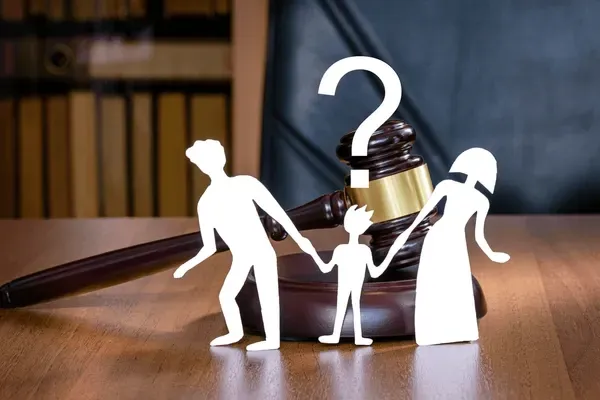6 Common Financial Mistakes Made in Divorces
Our Top Tips to Avoid Financial Mistakes While Getting a Divorce

During the course of the marriage, people usually share funds and make financial plans together. But while this is a healthy and convenient marital practice, it can make a separation a tad more complicated. That means that during your divorce, you will have to carefully review your accounts, income, expenses, and every mutual asset and make some important decisions. Although this process will be unpleasant, it is best to approach it seriously since it will have lasting implications.
In many cases, spouses underestimate the gravity of these issues. So, if you are facing this situation now, it would be best to take your time and learn everything you can about your rights and obligations.
Also, it would help if you tried to stay level-headed. Do not let your emotions rule your judgment in this matter. That way, you will be able to make the most reasonable decisions for your future.
To help you out, we have put together a list of the six most common financial mistakes people make in divorce. We also added a few tips on how to avoid them.
However, keep in mind that while this list can help you stay on the right track, it does not replace professional advice. Also, since every situation is unique, some of the information may not relate to your case. So, you will probably need to hire a financial expert to get the best possible results.
Let's get started!
Not Having All the Information About Your Marital Finances
The first step towards reaching the desired outcome is knowing where you and your ex-spouse stand financially. That is why you need to review all your sources of income and expenses. Include salaries, investments, benefit plans, etc., in your assessment.
There are cases when only one partner was in charge of finances during the marriage. That means the other doesn't have as much input on the financial situation. In a divorce, the other partner will be at a huge disadvantage when it comes to settling finances. To avoid this from happening to you, you should take note of all marital assets and request access to statements and reports.
Tip: If you have reasons to think your ex-spouse is hiding assets from you or is not being honest about their status, you should let your divorce team know. Your partner might be doing this to avoid sharing the funds with you. But failing to disclose assets or lying to the court is illegal, and your ex-spouse could suffer consequences.
Not Setting Aside a Separate Account to Help You Go Through the Divorce Process
Although you and your ex-spouse already live separately, divorce can take some time. That can put you in a state of financial insecurity for months on end. For this reason, it would be wise to set aside money to sustain yourself until the divorce settles. That account will also work as your safety net if something goes awry regarding financial negotiations.
For instance, imagine you suddenly lost your job, and your alimony claim is late for some reason. It would be tough to survive without additional funds or sources of income. But if you start saving money on time, you could have a backup sum to get you through the difficult period.
Tip: You should not hide this additional account from reports. Lying about your assets could get you in trouble with the court and increase the tension between you and your ex-spouse. So, be open and honest about why you set it up in the first place.
Thinking That an "Equal" Division Is a Fair Solution
The value of your assets is not limited or defined by their current market worth. Also, some assets, like bonds or rental property, generate income, making them more valuable. For instance, your 401k and your house have different worth, even though you've invested the same amount of money into them.
So, it would be best to take into account the full value your assets will have over time instead of dividing everything "equally" based on current monetary worth.
Tip: Do not forget about hidden expenses, such as associated transactional fees and tax costs, that might come with your assets.
Failing to File a Qualified Domestic Relations Order (QDRO)
A QDRO is a legal document that states how you and your ex-spouse decided to share a defined contribution plan, such as a pension plan, 457 plan, 401(k), or 403(b). It also directs the company's plan administrator to pay the negotiated portion to the non-employee spouse.
Tip: Since such payments will not go through without a proper QDRO, it's in your best interest to file it, or you might lose some important rights.
Overlooking the Consequences of Tax Liability and Penalties
There are various tax issues to consider concerning your divorce finances, ranging from spousal support to withdrawals from retirement funds. So, you might end up owing taxes on the part of marital assets you get after the divorce. For instance, when you withdraw money from your retirement fund, you will have to pay taxes. There's even a chance you will get some penalties for withdrawing early.
Generally speaking, taxes can be a bit of a complex subject. Therefore, it's in your best interest to talk to a professional about possible tax implications before the property division takes place. For example, you can agree to pay or get a lump sum payout instead of alimony to minimize income tax implications.
Tip: When given a settlement option, take time to calculate the investment's after-tax worth. Although the amount seems high at first glance, you will see the asset's true value and what you will actually get when you deduct the taxes.
Failure to Recognize Your Obligation to Pay Marital Debts
In general, if you accrued debt during your marriage, it is a joint obligation. So, the divorce process includes dividing the liability for marital debts. However, debtors frequently do not follow the terms you and your spouse set. Therefore, if you are not aware of your liability or your ex-spouse doesn't meet his, such unexpected debts can cause more stress and complications.
For example, imagine you and your ex-spouse decide they will be the one to take care of the credit card, but they fail to make payments on time. Collection agencies may pursue you instead, and they will not suddenly pardon you because of your divorce settlement agreement.
Tip: If at all feasible, pay off any marital debts before the divorce is finalized to save stress and lower the likelihood of debtors harassing you later.
Final Thoughts
Divorces are generally messy, and there are many things you need to keep in mind. That is why the whole experience can be overwhelming.
However, to save yourself from future intricacies and stress, you should take the time to prepare yourself. That includes learning all there is to know about marital finances, assessing all aspects of your current situation, and thinking about the future. Although you are going through a situation that is also emotionally taxing, try to keep a cool head.
All in all, to ensure the best possible outcome, try to think logically and hire a financial expert. By doing so, you will avoid many financial mistakes people usually make during a divorce.












